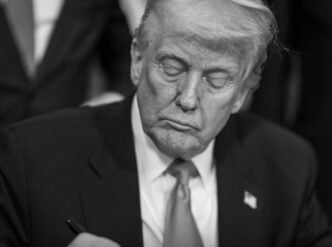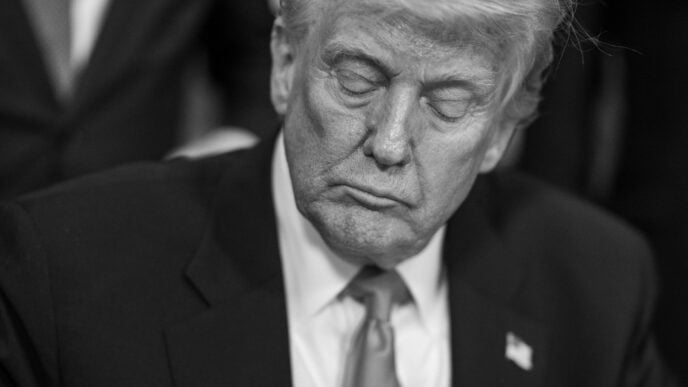A traffic officer in Abuja receiving a reward for diligence from Vento Furniture's ambassador, Olusegun Adeniyi, in 2021
If the previous exposition correctly diagnosed a national malaise, a “fractured covenant” born of dwindling patriotism and the hollow spectacle of media witch-hunts, then this follow-up seeks to propose a vital, yet often neglected, part of the cure. The relentless focus on the corrupt, while necessary, has created a dangerously skewed perception: that all public servants in Nigeria are inherently venal and that integrity is an extinct virtue. To counter this, we must deliberately and rigorously cultivate a culture that celebrates and appraises outstanding public officials, the unsung heroes of our democracy. This is not an exercise in sentimental patriotism, but a strategic imperative for fostering good governance in Nigeria.
The current socio-political ecosystem, as described, is a petri dish for cynicism. When the only public officials making headlines are those being “dragged” for alleged corruption or incompetence, a pervasive narrative takes root: ‘everyone is the same’. This narrative is a self-fulfilling prophecy and a weapon of mass demoralization. It discourages citizens from participating in the political process, dissuades talented and principled individuals from seeking public office for fear of being tarred with the same brush, and emboldens the corrupt by normalizing their behaviour. Above all, it further dents the already tinted image(s) of Nigerians before the committee of Nations. The “activist-cashivist” complex, in its multi-faced focus on hunting villains, and blackmailing politically exposed persons, inadvertently strengthens the very cynicism that paralyzes the nation. It offers no positive model, no alternative vision of what Nigerian public service can and should be.
Truth be told, Nigeria still have so many outstanding public servants, politicians, technocrats, and leaders. Our pitfalls only lie in the strategy of not celebrating such personalities, even when we know the roles they’ve played for the growth of democracy and good governance in Nigeria. The strategic celebration of exemplary public officials serves as a powerful antidote to this poison.
By shining a light on a Minister who streamlined a bureaucratic process, saving billions and reducing corruption; the local government chairman who delivered potable water and functional primary healthcare against all odds; or the judge who handed down a landmark judgment based purely on the law and not on influence, we provide tangible proof that integrity, competence, and service are achievable within the system. These stories break the monolithic myth of universal corruption and create a new benchmark for performance. They demonstrate that the problem is not “Nigeria” as an immutable entity, but a specific set of corruptible individuals and systems that can be, and are being, resisted. As posited in my previous article, modern Nigerian patriotism is not about blind allegiance to the state, but a “fierce, demanding love for the Nigerian people.” Celebrating public servants who genuinely serve the people provides a concrete focus for this love. It fosters a sense of pride and hope that is essential for civic engagement. When citizens see that their efforts, their votes, their advocacy, their taxes, can result in tangible good through the agency of an honest official, we are more likely to reinvest our faith in the democratic process. This is the emotional and psychological repair of the fractured covenant.
Advertisement
Instructively, a culture of celebration must be built on a foundation of consistent, evidence-based appraisal. This means developing and popularizing scorecards for public officials based on clear, measurable metrics of good governance: project delivery, budget fidelity, policy outcomes, and citizen feedback. Organizations like BudgIT and the Public and Private Development Centre (PPDC) already do this in sectors. This needs to become a mainstream national pastime. Appraising a governor on their state’s education outcomes based on data is far more powerful for good governance than a viral thread on their wardrobe. It shifts the public discourse from sensationalist personality politics to a sober assessment of performance and policy.
Nigeria does have unsung heroes. But who are they? They are not mythical creatures. They exist in the quiet corners of our bureaucracy, in the determined efforts of some civil servants, in the principled stands of certain judges, and in the innovative policies of some commissioners and ministers whose work is often obscured by the noise of scandal. They are Nigerians whose corruption is their refusal to chase social media clout or ‘compensate’ activists-cashivists franchises, thus drawing an irk from the latter.
Celebrating these figures has a direct, positive effect on governance. It raises the cost of Corruption. When integrity is celebrated and rewarded with public esteem, corruption becomes not just legally risky but socially costly. The corrupt official(s) can no longer hide behind the excuse that “everyone is doing it.”
Advertisement
This is not a call for sycophancy or the uncritical celebration of mediocrity. The scrutiny must continue, but it must be balanced. The media, the activist community (devoid of cashivists) and citizens at large have a dual mandate; to fearlessly expose corruption and to diligently unearth and celebrate excellence. We must build institutions and platforms dedicated to this mission, ensuring that the celebration is as rigorous and evidence-based as the condemnation.
The hollowing of justice is accelerated when hope is extinguished. By celebrating our unsung heroes, we do more than just honour a few good individuals; we actively rebuild the shattered faith that is the bedrock of any functional society. We replace the cynical trinity of fractured patriotism, media trials, and hollow justice with a restorative covenant: an engaged citizenry, a media that informs and inspires, and a justice system whose work is complemented by a culture that values integrity. We move from merely sprinkling nails for the corrupt and guilty to stumble upon, to laying a new, solid foundation upon which a better Nigeria can be built. The sun will only rise on a nation that believes a new dawn is possible. Let us now be the architects of that belief. Let us collectively agree to revamp the ignoble impression that Nigeria is a country of the corrupt. May the sun shine tomorrow…
Jamiu Adoke writes from Abuja, Nigeria and be reached via [email protected]
Advertisement
Views expressed by contributors are strictly personal and not of TheCable.







